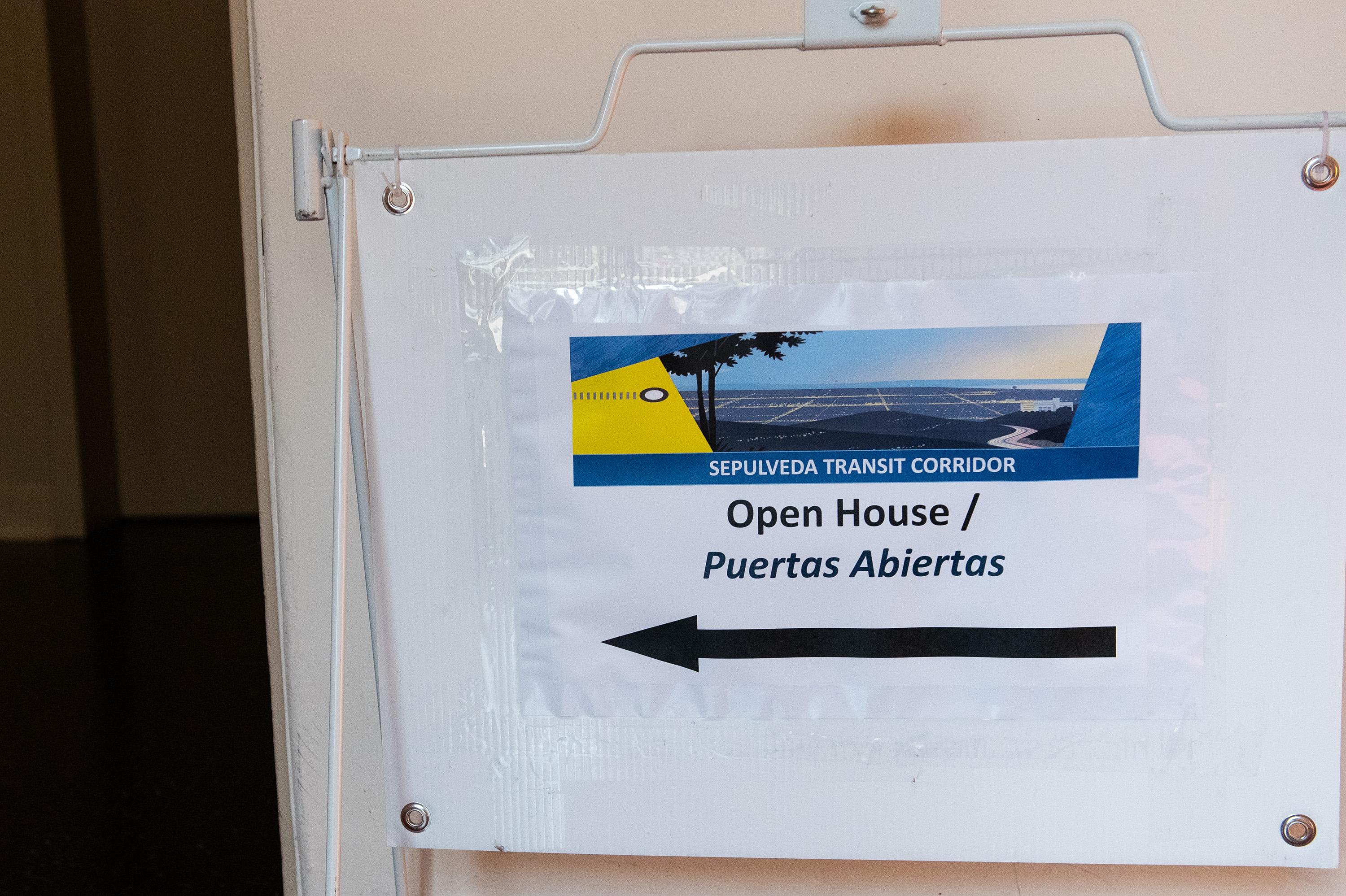Los Angeles Metro holds open house to discuss Sepulveda Transit Corridor Project
Los Angeles Metro held an open house about their plans for the Sepulveda Transit Corridor Project. The event had informational presentations and a public comment period. (Gabrielle Gillette/Daily Bruin)
By Gabrielle Gillette
May 22, 2024 7:15 p.m.
Around 90 community members attended an open house hosted by Los Angeles Metro on May 14 to discuss the status and future of the Sepulveda Transit Corridor Project, a project to expand accessible transit travel from the San Fernando Valley to West LA through the Sepulveda Pass.
The event, held at the Westwood United Methodist Church, included a formal presentation discussing the project’s state and its ongoing environmental impact report, along with a Q&A session.
Around 400,000 weekday trips use the Sepulveda Pass each Monday to Friday, and most of those trips are taken in individual vehicles, causing traffic on the Interstate 405, said presenter Ray Sosa, the chief planning officer of Metro.
The new corridor seeks to address these congestion issues, said LA Metro Communications Executive Officer Anthony Crump. He added that since the environmental impact evaluation of the project began in 2021, LA Metro has held 15 public meetings with around 2,300 total attendees, 6,500 stakeholders and 6,000 public comments.
Ultimately, the project seeks to improve mobility for both private vehicles and public transport in a cost-effective way that supports the communities around it, Sosa said
“We want a resilient system,” Sosa said during his presentation. “Whether there is a event, natural or unnatural, we want a transportation system that holistically can continue to move people through the quarter, despite those events.”
The environmental impact review, which analyzes the project’s six possible alternatives, will become available to the public in early 2025, said Cory Zelmer, deputy executive officer at LA Metro. He also said LA Metro will look at other transit projects in progress to evaluate how the overlap will impact the environment.
After the report is released, there will be a 60-day period of public review, where the project’s leaders will decide the public’s preferred alternative, Zelmer said. If the alternative is approved by the Metro Board of Directors, it will go through another round of environmental evaluations and then move to the state and federal government for funding approval, he said.
Crump said in an interview that the evaluation team will analyze factors such as traffic, noise, vibration and sustainability when making their decision.
“With a project that is as big and as complex as this one, we really want to make sure that we look at everything and that it’s not just like, ‘Oh that’s a great idea, let’s run it,’” Crump said. “It doesn’t work like that.”
Zelmer added that they are considering removing Alternative 2, which would make a stop on Veteran Avenue, where passengers could then transfer to the D line or take an “underground automated people mover” to the Luskin Gateway Plaza.
Joseph Fishkin, a professor at the UCLA School of Law and attendee at the meeting, said the combination of the high cost of living and difficult transportation options around LA affects UCLA’s ability to recruit new faculty.
“The housing costs right around here are very high,” he said. “Then, if you go further out, you get these long commutes and so that combination is the challenge.”
The corridor would make it easier for members of the UCLA community to live in more affordable areas of LA while not having to worry about the long commute, Fishkin said.
Community members in attendance said they appreciated LA Metro’s emphasis on community input in planning the STC.
Steve Sann, chair of the Westwood Community Council, said he has been following the process since its inception. Westwood will be a key source of ridership for the line, making it critical for UCLA students and faculty to make their voices heard, he said.
Lawrence Tran, co-project director of the transportation equity and access committee in the UCLA Undergraduate Student Association Council’s Facilities Commission, said the meetings held by LA Metro are not only a good way for students to share their opinions but also to get to know the people behind the project better.
Crump said community voices are essential to ensuring the success of the STC Project.
“We need to hear from students. We need to hear from residents. We need to hear from businesses. We need to hear from commuters.” Crump said in the interview. “This has to work for all of them in order to be successful.”
